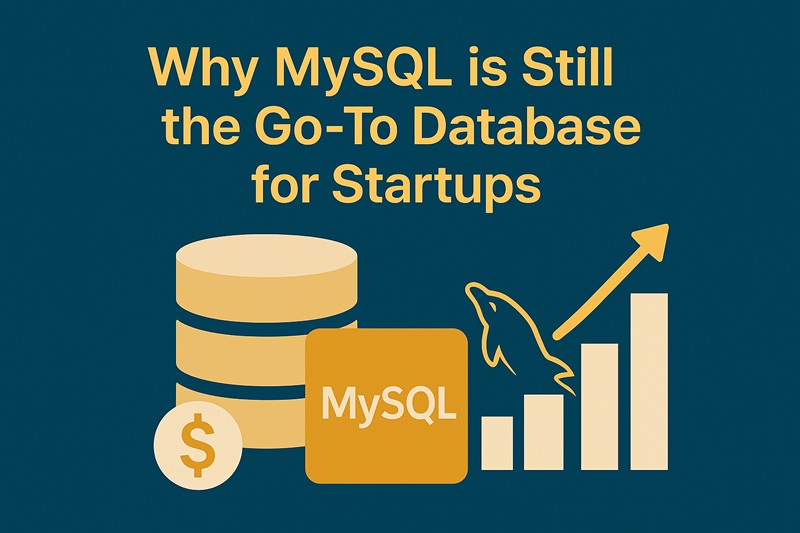When it comes to launching a startup, every decision matters—especially the choice of database. The database you choose not only determines how your application will handle data but also impacts scalability, costs, and performance in the long run. Among the numerous options available, MySQL remains the most popular and reliable database for startups. But why does it continue to hold this dominant position despite the rise of modern databases like MongoDB, PostgreSQL, and NoSQL alternatives? Let’s dive into the reasons that make MySQL the go-to solution for entrepreneurs and developers.
1. Proven Reliability and Stability
MySQL has been around for more than two decades and has established itself as a trusted database solution. Its track record of stability is unmatched, making it a safe choice for startups that cannot afford frequent downtimes or unstable data environments. Whether your business is an e-commerce platform, SaaS product, or mobile application, MySQL offers the reliability you need during your critical growth phases.
2. Cost-Effectiveness for Budget-Conscious Startups
Startups often work with limited budgets, and one of the biggest advantages of MySQL is that it’s open-source and free to use. Unlike many enterprise-level databases that come with hefty license fees, MySQL allows new businesses to invest their money where it matters most—product development, marketing, and growth. For those who need enterprise-grade support, Oracle offers paid versions, but the community edition is sufficient for most startups in their early stages.
3. Easy to Learn and Use
Startups need technologies that their teams can quickly learn and implement. MySQL’s simple syntax and extensive documentation make it beginner-friendly. Developers with even basic SQL knowledge can get started in no time. This ease of use reduces the learning curve, allowing startups to build, test, and deploy applications faster without relying on expensive training or specialized experts.
4. Scalability That Grows with Your Business
A database must be able to handle growth seamlessly. MySQL offers excellent scalability, which allows startups to begin small and gradually expand as their user base increases. Features such as replication, clustering, and partitioning ensure that your database can support higher workloads without compromising performance. Many of today’s tech giants, including Facebook, Twitter, and YouTube, started with MySQL before scaling to massive levels.
5. Strong Community and Ecosystem Support
One of MySQL’s biggest strengths is its global community of developers and contributors. This ecosystem provides continuous updates, bug fixes, and a wealth of resources for troubleshooting. Whether you need tutorials, plugins, or advanced features, the MySQL community ensures that startups never feel stuck. In addition, MySQL integrates well with popular programming languages like PHP, Python, and Node.js, making it easy to fit into modern tech stacks.
6. Compatibility with Leading Hosting Providers
Another reason why startups prefer MySQL is its wide compatibility with hosting providers and cloud platforms. From AWS RDS and Google Cloud SQL to shared hosting services, MySQL is supported almost everywhere. This flexibility ensures that startups can switch providers or scale to cloud environments without database migration hassles.
7. Security and Performance
Startups must prioritize security from day one, and MySQL doesn’t disappoint. It offers robust data security features including user authentication, SSL support, and role-based access control. Performance-wise, MySQL is highly optimized for read-heavy workloads, which is a common scenario for early-stage businesses that need fast query responses for users.
Conclusion
In a world where new technologies emerge almost every year, MySQL has managed to stand the test of time. Its balance of reliability, cost-effectiveness, scalability, and ease of use makes it the ideal database for startups. While other databases may be suited for specific use cases, MySQL provides the stability and flexibility that growing businesses need during their early and expansion stages. For startups looking to build a solid foundation without unnecessary complexity, MySQL remains the go-to choice—and for good reason.





